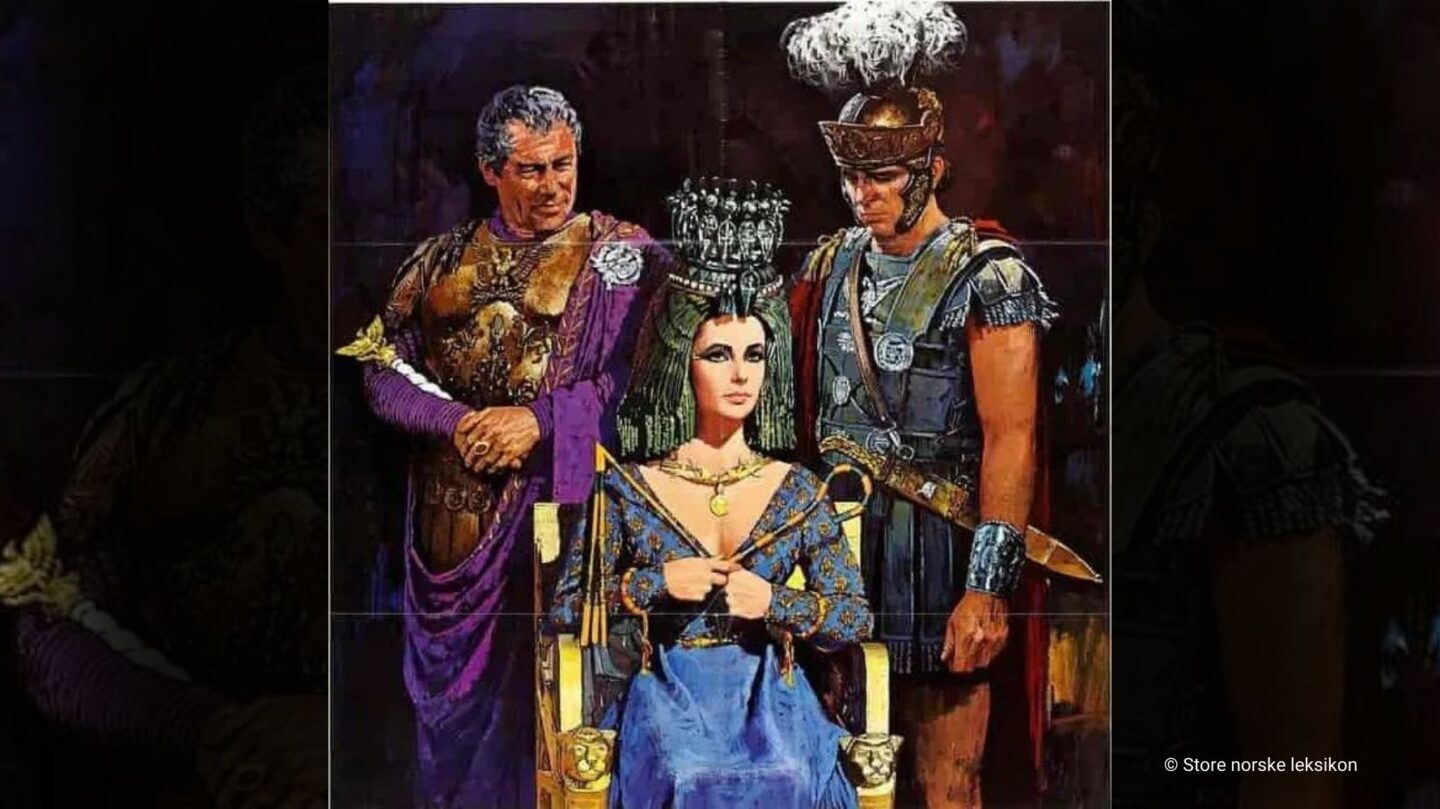The Queen of the Nile: A Master of Power and Charm
Cleopatra VII, the last active ruler of the Ptolemaic Kingdom of Egypt, is remembered as one of history’s most intriguing figures. Known for her intelligence, charisma, and political savvy, Cleopatra’s alliances with two of Rome’s most powerful men—Julius Caesar and Mark Antony—shaped the fate of an empire. However, this love triangle was far more than just a tale of romance. It was a calculated strategy by Cleopatra to secure her throne and protect Egypt’s sovereignty.
Cleopatra and Julius Caesar: A Political Alliance Disguised as Love
When Cleopatra met Julius Caesar in 48 BCE, Egypt was in turmoil. She was embroiled in a civil war with her brother and co-ruler, Ptolemy XIII. Cleopatra’s meeting with Caesar was nothing short of legendary. According to historical accounts, she was smuggled into Caesar’s quarters wrapped in a carpet, a bold gesture that immediately captured his attention.
Their relationship was as political as it was personal. Cleopatra needed Caesar’s military support to regain her throne, while Caesar saw in her an ally who could supply the wealth and resources of Egypt to support his ambitions in Rome. Together, they defeated Ptolemy XIII, securing Cleopatra’s position as queen. Their union produced a son, Caesarion, whom Cleopatra declared the rightful heir to both Egypt and Rome—a claim that would later create significant tension in the Roman Empire.
Mark Antony and Cleopatra: A Romance That Shook the World
After Caesar’s assassination in 44 BCE, Cleopatra sought a new ally in Mark Antony, one of Rome’s most powerful generals. Their meeting in 41 BCE was as theatrical as it was strategic. Cleopatra famously arrived on a golden barge, dressed as the goddess Aphrodite, captivating Antony with her charm and opulence.
What began as a political alliance quickly blossomed into one of history’s most famous love stories. Antony and Cleopatra became inseparable, with Antony abandoning his Roman duties to live in Alexandria. Their relationship was not without controversy. Many in Rome viewed Cleopatra as a manipulative foreigner who had bewitched Antony, leading him to neglect his responsibilities.
Their union produced three children, further solidifying their alliance. However, Antony’s close ties to Cleopatra alienated him from Rome, particularly from Octavian, Caesar’s adopted heir. This tension culminated in a propaganda war, with Octavian portraying Antony as a traitor to Rome and Cleopatra as a seductress intent on undermining the Roman Republic.
The Battle of Actium: The Beginning of the End
In 31 BCE, the conflict between Antony and Octavian reached its climax at the naval Battle of Actium. Antony and Cleopatra’s forces were decisively defeated, marking the end of their power. Retreating to Egypt, the pair faced mounting pressure as Octavian closed in.
In 30 BCE, with no hope of victory, Antony took his own life after hearing false rumors of Cleopatra’s death. Shortly after, Cleopatra followed suit, reportedly allowing an asp to bite her, though the exact method of her suicide remains a mystery. Their deaths marked the end of the Ptolemaic dynasty and Egypt’s independence, as the country became a province of the Roman Empire.
A Legacy of Power, Passion, and Politics
The love triangle between Cleopatra, Julius Caesar, and Mark Antony was more than a story of romance; it was a high-stakes political game that altered the course of history. Cleopatra’s cunning and ambition ensured her a place in history as a powerful leader who defied the odds. Her alliances with Caesar and Antony reshaped the Roman Empire and left a legacy of intrigue that continues to captivate the world today.
